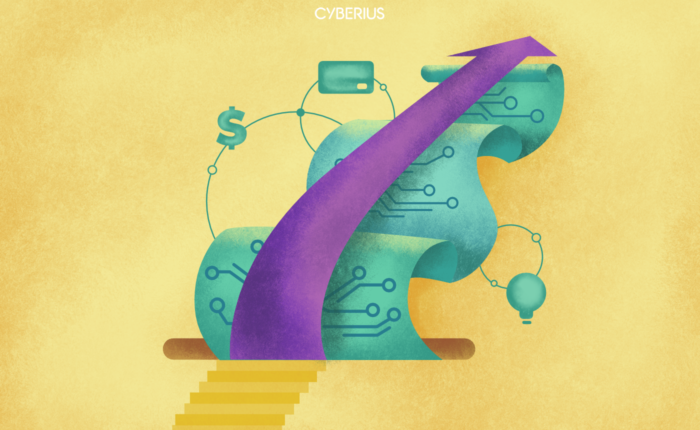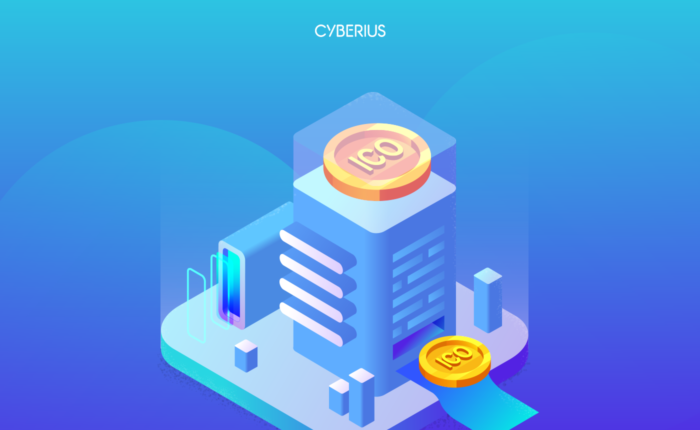What is Blockchain
Blockchain are digitized, decentralized, public ledgers of all cryptocurrency transactions (or other forms of data), made up of continuously growing lists of records, called blocks, which are linked and secured using cryptography.
The blockchain was originally developed as the accounting method for the virtual currency Bitcoin. Blockchains (which use distributed ledger technology) are used in various commercial applications today. This is largely due to Ethereum upgrading the blockchain concept, and offering smart contracts.
What is Smart Contracts
Smart contracts are computer protocols on the blockchain, intended to facilitate, verify, or enforce the negotiation or performance of contracts. They execute their creator’s programmed commands exactly.
They’ve been used primarily in association with cryptocurrencies, and do not rely on middlemen to facilitate the performance of contracts; Rather, two parties create a self-executing digital contract that’s stored on a shared network.
How Does A Smart Contract Function?
Smart contracts permit trusted decentralized transactions and agreements to be carried anonymously between parties. They render transactions traceable, transparent, and irreversible.
Apart from smart contracts functioning as multi signature accounts, so that funds are spent only when a required percentage of people agree, they also manage agreements between users. Moreover, smart contracts provide utility to other contracts the way a software library works.
They can also store information about an application, such as domain registration information or membership records.
Smart Contract Projects And Applications
Smart contracts may have the most potential to change the way companies and organizations do business. The Ethereum platform’s blockchain allows developers to program their own smart contracts by using the Turing Complete Language that supports a broader set of computational instructions.
Ethereum‘s native digital currency, Ether, is mostly used as a tool for dapp building, it’s referred to often as fuel or gas for the network. The Ethereum Virtual Machine is a major part of Ethereum’s ecosystem, where an arbitrary code of smart contracts and other operations can be executed.
All transactions from simple transfers to ICO smart contracts require associated costs called gas whereby simple transactions like transfers require less gas to perform than more intense smart contracts.
Counterparty
Counterparty is an open peer-to-peer financial platform that leverages the strengths of Bitcoin. This company is built in Turing-complete scripting language hence allowing anyone to create custom smart contracts and execute their code on the Bitcoin blockchain.
It extends Bitcoin’s functionality in new and unprecedented ways by encoding data in ordinary Bitcoin transactions. The Bitcoin protocol and power support the development and adoption of valuable new features. Counterparty used the pyethereum codebase by leveraging Bitcoin’s blockchain and Ethereum’s language and EVM to its platform.
RootStock
RootStock (RSK) focuses on an open-source contract platform with a two-way peg to Bitcoin. RSK connects Bitcoin and Ethereum to enable new smart contracting capabilities, hence allowing Bitcoin miners to be rewarded via merged mining.
The RSK strengthens relationships with Bitcoin miners, whereby the miners use their installed capacity to run decentralized smart contracts and merge-mine RSK, which will open up an additional revenue stream. RSK Lab’s founders believe that decentralized blockchains with smart contract capabilities will be the driving force behind global financial inclusion, new democratic political systems, and the Internet of Things (IoT).
Etheria
Etheria is a Minecraft-like virtual world in which players can own tiles, ‘farm’ them for blocks, and build things. The entire state of this virtual world is held in and all player actions are made through the decentralized, trustless, Ethereum blockchain.
The team points out that all virtual worlds are being controlled by a single entity. All aspects of Etheria are “agreed to” by the participants of the Ethereum network without a central authority. This means Etheria cannot be censored or taken down by the government, by its “owner-players”, or even by the developer-fivedogit. Therefore, it will exist as long as Ethereum does.
KYC-Chain
KYC-Chain provides consensus on the identity of individuals at the highest level of trust. The service utilizes existing know-your-customer regulations, and plans to bring ease and simplicity to the process of identification for businesses wishing to bring new customers.
The platform’s identity wallets allow users to share only the information necessary so as to safeguard individuals’ identities. The KYC-Chain employs Ethereum and works primarily via the use of individual or legal entities permitted by law to authenticate KYC documents of people such as notary public, diplomats, lawyers, and government’s gatekeepers.
A trusted gatekeeper would perform an individual check on a user’s ID using KYC-Chain’s platform and authenticate them. The files would be stored in a distributed database system, which can later be retrieved by the trusted gatekeeper, or the user, to demonstrate with certainty that the ID is genuine.
4G Capital
4G Capital provides instant access to credit for small business growth in Africa, and has developed a concept dapp for the use of smart contracts. Donors would be able to use the dapp to fund small businesses in Kenya, using digital currency.
The money lent would be converted and disbursed to the businesses using 4G Capital’s transactional system. Its vision is to empower individuals, businesses, and markets by delivering financial inclusion and supporting change across Africa from the grassroots level.
As well as providing 100% unsecured debt funding to self-employed, informal, market traders, the project also provides micro-consulting and business training to increase customer’s skill levels and business knowledge.
Smart Contracts In Insurance Policies
Insurance companies can automate insurance policies by writing them into a smart contracts. When the input conditions of the smart contract change in an insured event, for example in the event of a catastrophic natural disaster, then the claims process is triggered immediately.
Measurable parameters of the event, such as wind speed, location of a hurricane, or magnitude of an earthquake can be recorded onto the blockchain. Variable with the complexity of the smart contract, as the parameters cross certain pre-agreed thresholds, the claims process is triggered immediately and the exact amount of financial payout can be delivered without the need for human-driven intervention that is costly and time-consuming.
GetSafe offers users a simple, smart, and convenient solution to manage their insurance policies from all different carriers in one application – at no extra cost. The GetSafe App gives users a digital overview of their existing insurance policies. Helps them optimize their insurance portfolio, and offers them free and truly independent advice through certified insurance experts.
Smart Contracts And Copyrighted Content
The music industry has implemented a smart contract solution, built on a blockchain to keep track of all ownership rights. This ensures trust in true ownership since any changes to the data on the blockchain requires a consensus from all parties on the network.
The smart contract ensures that a royalty payment is generated and paid in real time, with the added benefit that as the transaction is broadcast across the blockchain. Every relevant stakeholder can instantly reflect this in their accounting.
Companies like Benji Rogers’ online music platform PledgeMusic have published a comprehensive blueprint for the Fair Trade Music Database, a globally decentralized, blockchain-based, ledger that can solve the problems of ownership, payments, and transparency.
Blockchain technology and smart contracts are attractive wherever trust is required. Smart contracts hold a lot of promise for the future, and their mainstream uses are inevitable.





Leave a Comment